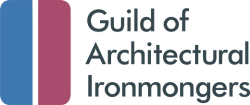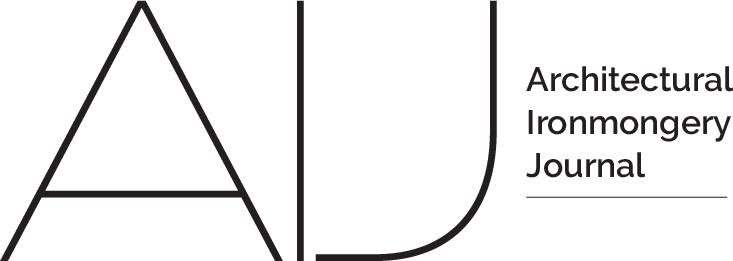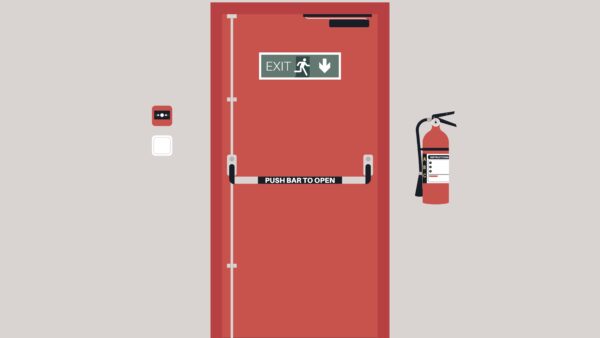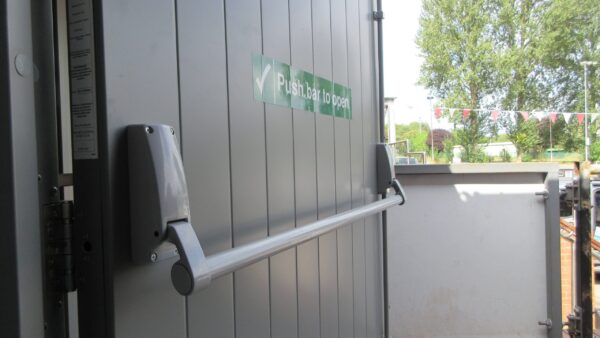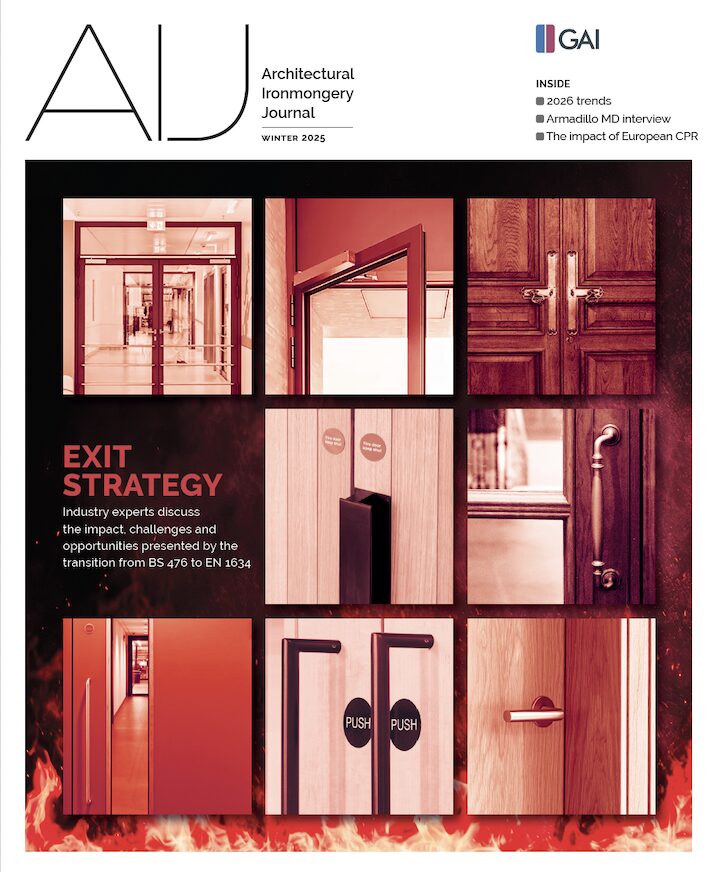Bryony Matthews, RegAI, owner of consultancy Iron Out, talks to AIJ about building clarity, competency and her mug collection.
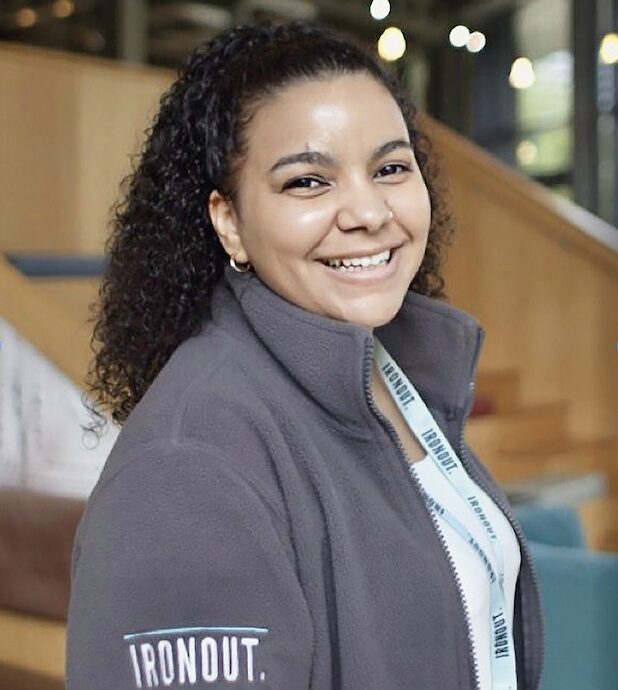
How and why did you get into the industry?
How is easy: it was by accident. I’m one of many who stumbled into this niche by chance. I’d unknowingly gathered hardware knowledge across various jobs until a job ad made me realise it all fell under ‘architectural ironmongery’. This journey led me to become a qualified professional in the field and, ultimately, to create Iron Out.
As for why? I wonder that when I catch myself looking at hardware when out and about.
What prompted the creation of Iron Out?
It was unplanned. I was meant to take a career break, but that lasted all of two weeks! Turns out, when I relax, I start new business ventures… who does that?
I was reflecting on my sector experience and noticed companies often didn’t have someone solely responsible for overseeing technical and compliance matters. Instead, tasks get fragmented across different people. It makes it harder to maintain overall visibility. These odd jobs, sitting between technical support, marketing, and process management, often found their way to me. It wasn’t a new idea, just something I’d already been doing that I turned into a service.
What have been the main challenges?
Culture. Mainly how culture impacts the perceived value around competence, compliance and the knowledge we offer as ironmongers.
Whether I’m brought in reactively or proactively, it’s vital that I work with those who value compliance and cultivate an environment of psychological safety and respect to achieve it.
What has success looked like?
That’s a great question. I’d say success has looked like many things along the way. It’s looked like receiving my workwear in the post, or getting my first payment. Creating new solutions, learning about myself, and gaining confidence in commercial decisions. It’s looked like helping a customer achieve their goals, or helping a company save tens of thousands of pounds with just a simple email. It’s looked like achieving the things I set out to do each day.
What does the future hold for you?
Well, I’ve been collecting mugs from ironmongers I’ve networked with, so I’m thinking a display cabinet might be in order! Beyond that, my visions are for Iron Out to be a key driver in innovative solutions that transform the industry, elevate quality standards, and enhance public safety and security when it comes to building hardware and doors. Ultimately, I aim to use my knowledge to help others and be fulfilled in doing so. As long as the future holds that, I’ll be exactly where I want to be.
What are you finding are the most common challenges your clients are bringing to you?
The biggest challenges revolve around visibility – both giving and getting it. Suppliers need to provide buyers with clear, accurate product information, documentation, and quotes, while buyers need the knowledge and competence to verify suitability. It’s the same for CPD and training – people want to trust what they’re learning. Having third-party support helps build that trust.
Suppliers also struggle with engagement and market insights – where to invest in testing, how to collaborate on testing costs, or how to demonstrate competence.
The second biggest challenge is capacity. Many companies know what they need, they just need support to get tasks and projects over the line. Being in a technical role and familiar with the market, I can quickly provide relief or project support as needed. I stay ahead through CPD, maintain a digital library of resources, and have access to all relevant standards, enabling me to offer clear, evidence-backed insights for fact-checking tasks.
With limited market research in the sector, I help clients understand that market alignment is key to visibility and clarity. The right processes and management systems enable companies to capture important intelligence, empowering them to make informed decisions and stay ahead of industry changes. This is central to quality assurance and risk mitigation. I help businesses bridge these gaps, equipping them with the tools and insights to stay ahead without being dependent on me.
What do you expect clients to need support with in the near future?
I expect the near future may include supporting suppliers who need to adapt to the growing demand for digital clarity – again, it’s about aligning to the market.
Some suppliers are visibly unprepared, and those failing to provide accurate, transparent information are already losing sales. Buying influencers, like fire door inspectors, are a great example; if a supplier makes accessing information difficult, they recommend those who simplify their job and meet the client needs. Those who don’t act will be left behind in this market shift.
